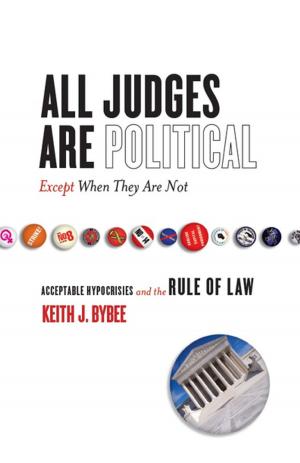Forging a Multinational State
State Making in Imperial Austria from the Enlightenment to the First World War
Nonfiction, History, European General| Author: | John Deak | ISBN: | 9780804795937 |
| Publisher: | Stanford University Press | Publication: | September 23, 2015 |
| Imprint: | Stanford University Press | Language: | English |
| Author: | John Deak |
| ISBN: | 9780804795937 |
| Publisher: | Stanford University Press |
| Publication: | September 23, 2015 |
| Imprint: | Stanford University Press |
| Language: | English |
The Habsburg Monarchy ruled over approximately one-third of Europe for almost 150 years. Previous books on the Habsburg Empire emphasize its slow decline in the face of the growth of neighboring nation-states. John Deak, instead, argues that the state was not in eternal decline, but actively sought not only to adapt, but also to modernize and build.
Deak has spent years mastering the structure and practices of the Austrian public administration and has immersed himself in the minutiae of its codes, reforms, political maneuverings, and culture. He demonstrates how an early modern empire made up of disparate lands connected solely by the feudal ties of a ruling family was transformed into a relatively unitary, modern, semi-centralized bureaucratic continental empire. This process was only derailed by the state of emergency that accompanied the First World War. Consequently, Deak provides the reader with a new appreciation for the evolving architecture of one of Europe's Great Powers in the long nineteenth century.
The Habsburg Monarchy ruled over approximately one-third of Europe for almost 150 years. Previous books on the Habsburg Empire emphasize its slow decline in the face of the growth of neighboring nation-states. John Deak, instead, argues that the state was not in eternal decline, but actively sought not only to adapt, but also to modernize and build.
Deak has spent years mastering the structure and practices of the Austrian public administration and has immersed himself in the minutiae of its codes, reforms, political maneuverings, and culture. He demonstrates how an early modern empire made up of disparate lands connected solely by the feudal ties of a ruling family was transformed into a relatively unitary, modern, semi-centralized bureaucratic continental empire. This process was only derailed by the state of emergency that accompanied the First World War. Consequently, Deak provides the reader with a new appreciation for the evolving architecture of one of Europe's Great Powers in the long nineteenth century.















